
About This Quiz
Great Britain can hold claim to overseeing one of the largest empires in the history of the world. At its peak, around the early 20th century, a staggering 25% of the global population lived within its rules, according to the British National Archives. All that power throughout the centuries has meant plenty of wealth and resources for this relatively small island nation. While the age of colonialism has largely ended, the strength and history of Great Britain lives on in its landmarks, from thousand-year-old cathedrals and castles to modern sculptures to striking natural wonders not seen anywhere else on Earth.
Britain's most famous sites, which can be found entirely within the countries of England, Wales and Scotland, range from soaring towers to simple stone arrangements built by long-lost settlers. They run the gamut from Gothic to Baroque, Romanesque and Modern, illustrating just how many cultures have influenced the Brits over the years. Whether you're a history buff or a thrill-seeker, it'll take several trips to Great Britain to see even a fraction of the sites in this quiz, although you've probably seen many of them before thanks to television, movies and tour guides. Take our quiz to see how many of these landmarks you can identify!
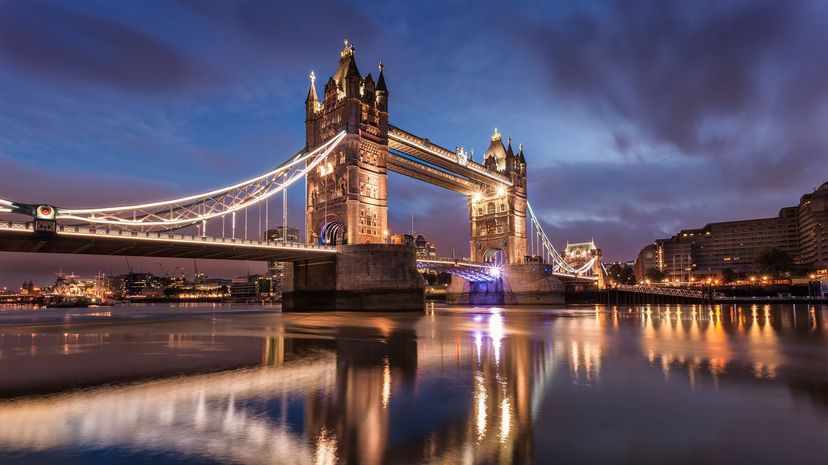
London's iconic Tower Bridge was built in the late 1800s along the River Thames, just next to the imposing Tower of London. The towers are either end of the span are connected by a walkway, with a drawbridge underneath to let tall ships pass in the water below. Visitors to Tower Bridge can not only climb the towers but also check out the century-old engine rooms that were once used to activate the drawbridge.
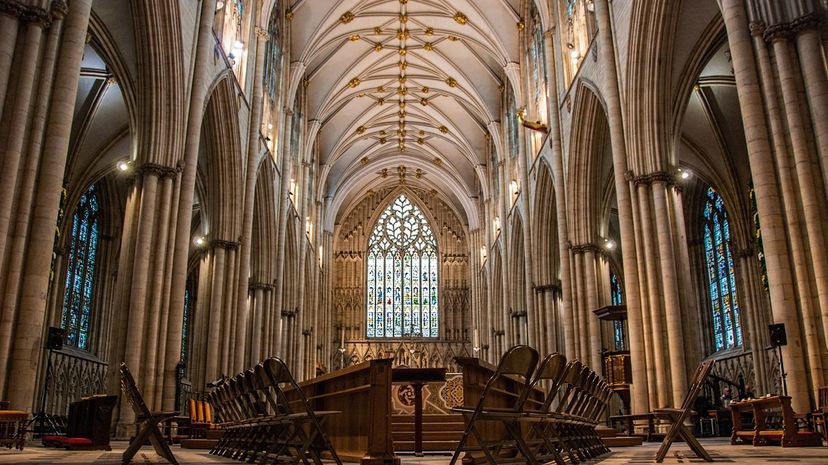
Located in northeast England, York Minster is an impressive Gothic church with vaulted ceilings and stained glass galore. Established around the 4th century on an old Roman fort, the building grew from a 7th-century wooden church to a massive medieval cathedral, complete with a series of stained-glass windows that are 50 feet tall.
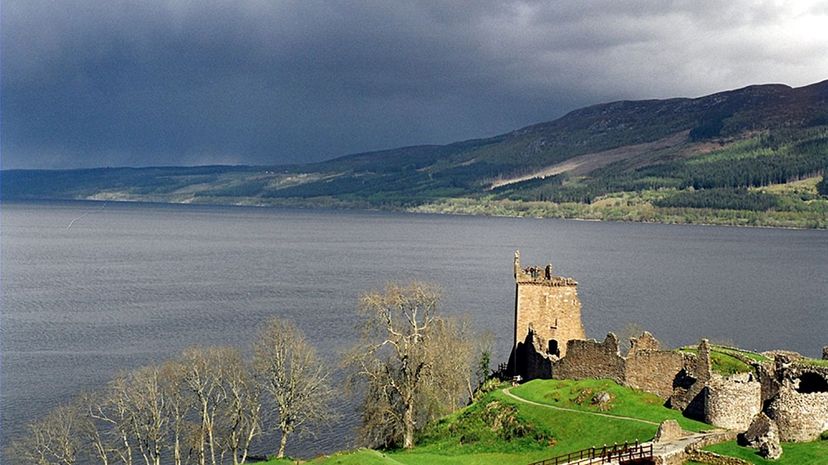
A 50-foot deep freshwater lake in the Scottish Highlands, Loch Ness has captured the public's attention over the past century thanks to images that some claim show a sea monster swimming through the water. While these photos have been deemed hoaxes by most experts, Loch Ness is still a magical place. Visitors can take in the area's natural beauty, tour a nearby castle and lighthouse and take in museum exhibits related to the Loch Ness Monster rumors that date back to the 6th century.
Advertisement
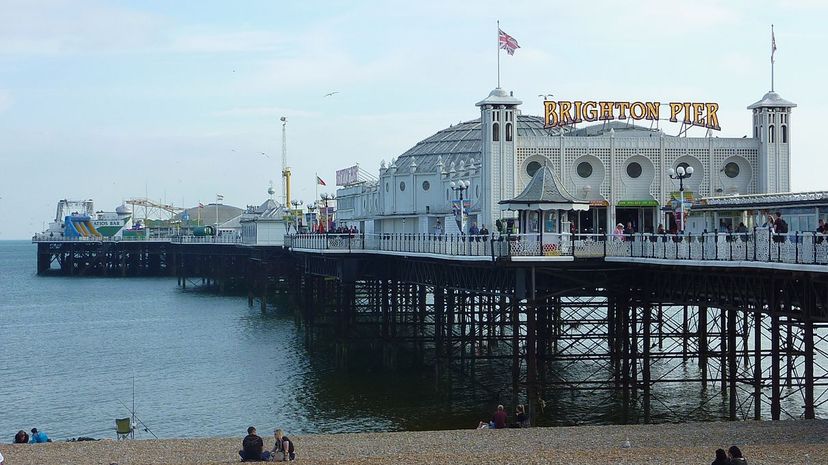
For almost 200 years, visitors to the Brighton area in Southern England have been able to traverse the local pier, taking in the sites like fortune tellers and entertainment acts. Today, the Brighton Palace Pier is 1,722 feet long and packed full of cutting-edge roller coasters and amusement rides, plus plenty of concessions and games.
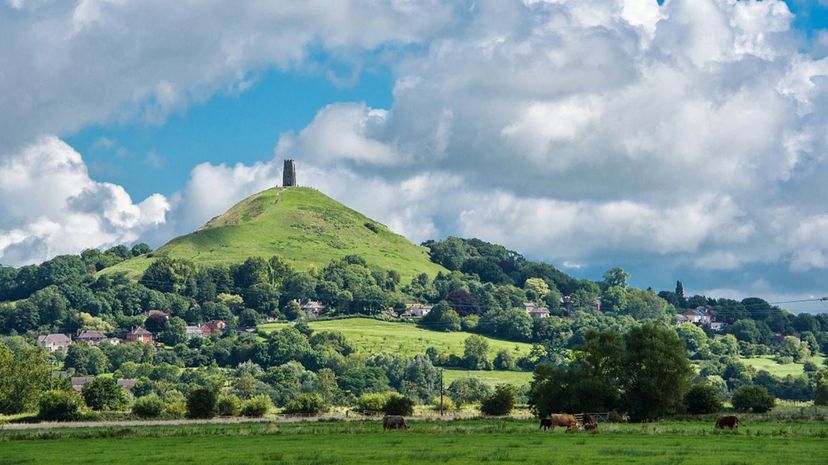
Situated in Somerset in southwest England, Glastonbury Tor is all that remains of the 14th-century Church of St. Michael. More than 500 feet tall, it sits atop a terraced hill that has been the site of a church of some kind since the first century. This fascinating site is full of stories, from tales of King Arthur, to the Holy Grail, to ancient Celtic and Pagan legends.
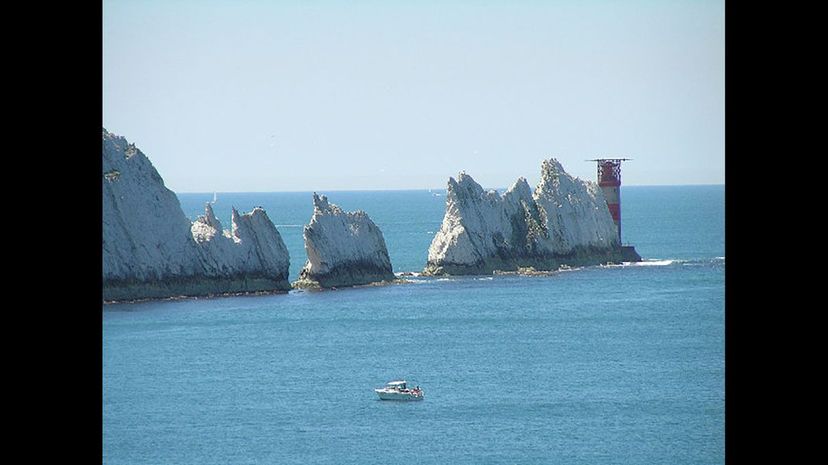
These 100-foot-high chalk mounds off the Isle of Wight in southern England are known as The Needles. Stretching out along Alum Bay, they are flanked at one end by Trinity Lighthouse and at the other by a massive, castle-topped cliff. Fun fact ... this is where Marconi sent the first wireless signals way back in 1897.
Advertisement
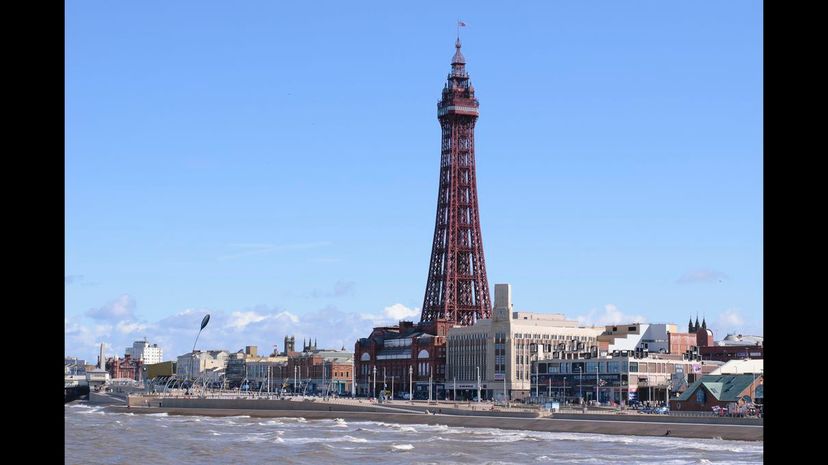
Blackpool has long been a popular seaside town for Brits, but the addition of the 514-foot-tall Blackpool Tower in 1894 brought even more reasons to visit the area. Inspired by the design of the Eiffel Tower in Paris, the Blackpool structure is home to a circus that has been in continuous operation for over a century. Visitors can also head to the top viewing platform, known as the Eye, and take in views of the Irish Sea.
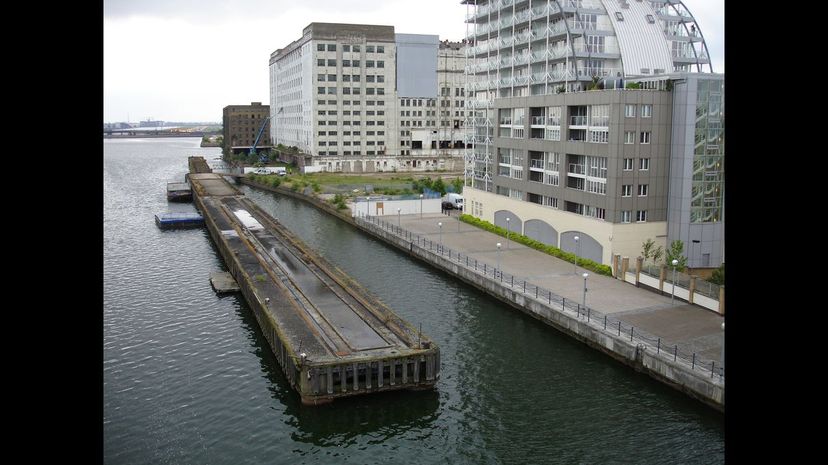
The Royal Albert Dock in Liverpool, opened in 1846, has long played a critical role in Britain's growth and strength. When the dock first opened, it used revolutionary technology for the period, including hydraulic cranes and systems that allowed ships to load or unload directly into the warehouses rather than outside. This UNESCO World Heritage Site now includes museums and entertainment venues to draw visitors from all over Britain and the world.

Edinburgh Castle sits high atop Castle Rock, overlooking the North Sea and Scotland's capital city. Occupied since the 2nd century, this site has had some kind of castle built on it since at least the 1100s. Today, it houses the Honours of Scotland-the Scottish version of the Crown Jewels-as well as the Stone of Destiny, which is used in coronation ceremonies for British monarchs.
Advertisement
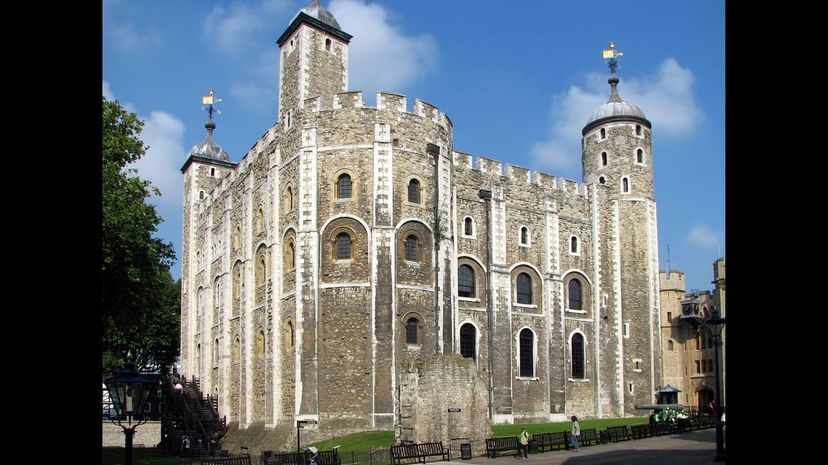
The infamous Tower of London has been used to house royals and prisoners since the 11th century. This imposing fortress is also home to half a dozen ravens, and legend has it that if the birds fly off, the tower will fall. Today, the Tower staff keep the birds' wings clipped so they can't fly ... just in case.
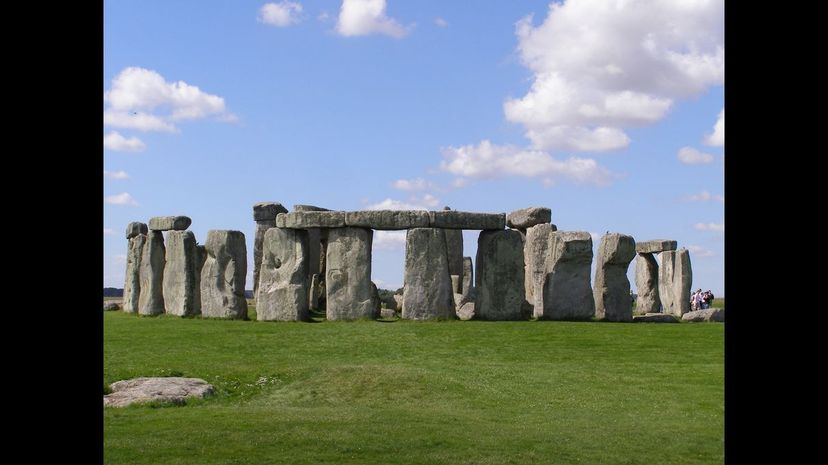
Was it the center of the ancient world or just a way to honor the gods or Mother Nature? While no one is totally sure why Stonehenge was built, one thing that is true about this monument is that it's hugely popular with tourists. Until the mid-20th century, you could touch and even climb this 4,500 year-old-stone arrangement, but protective fencing means modern visitors can look but not touch.
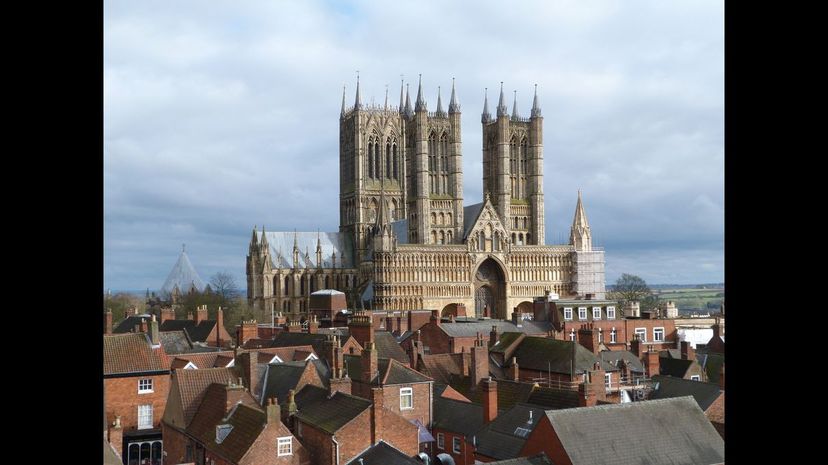
Lincoln Cathedral, formally known as St. Mary's Cathedral, is a medieval church built on the east coast of England back in 1072. After damage from a fire and an earthquake during the 12th century, it was rebuilt over the years in an impressive Gothic style. Its central tower replaced the Great Pyramid as the world's tallest structure in the 14th century, and one of the original copies of the Magna Carta was stored here for centuries.
Advertisement
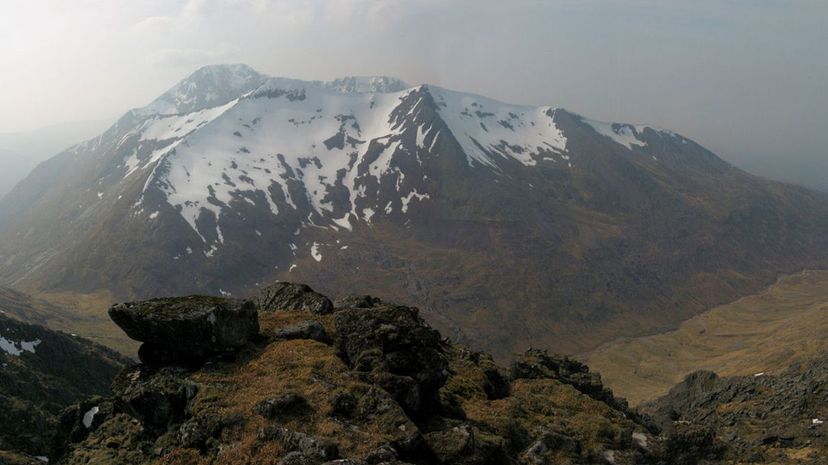
The name for Britain's tallest mountain, Ben Nevis, comes from a Gaelic term meaning "mountain by the river." You can take the Pony Track up the east face of the mountain to reach the abandoned observatory on top with relative ease, or take the hard route up the northern face if you're looking for a bigger climbing challenge.
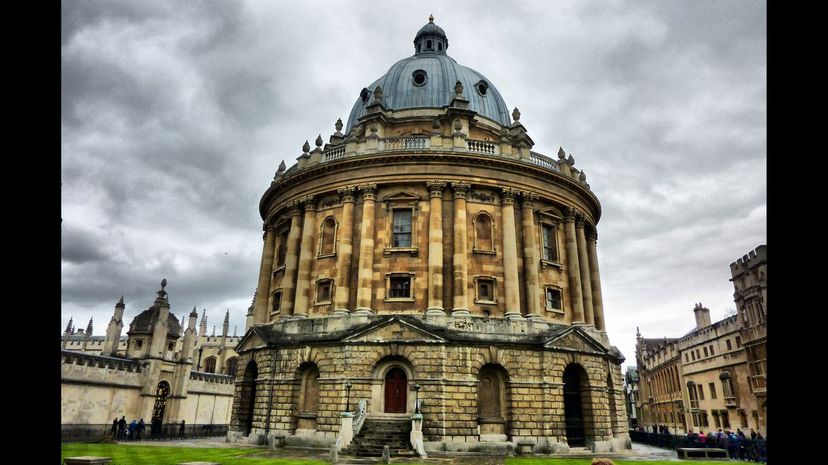
Situated just west of London, Oxford has been a center of British learning and education since 1096, making it one of the world's oldest universities. The Radcliffe Camera was built in the 18th century in the neo-classical style to serve as a science library. Today, this circular structure with its impressive dome and mezzanines is used as a reading room for students at the school.
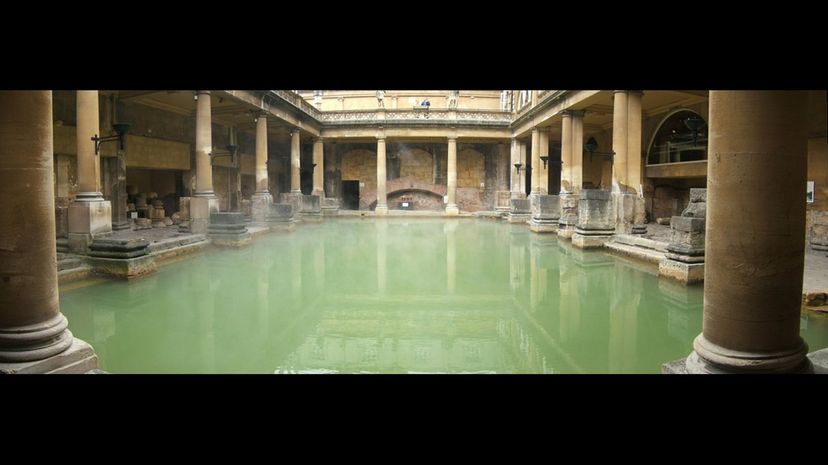
Fed by warm underground springs, the Roman Baths in South West England were built for public bathing between 60 and 360 A.D. Today, a million visitors a year come to take a tour and to visit local spas and attractions, according to the official website for the Roman Baths.
Advertisement
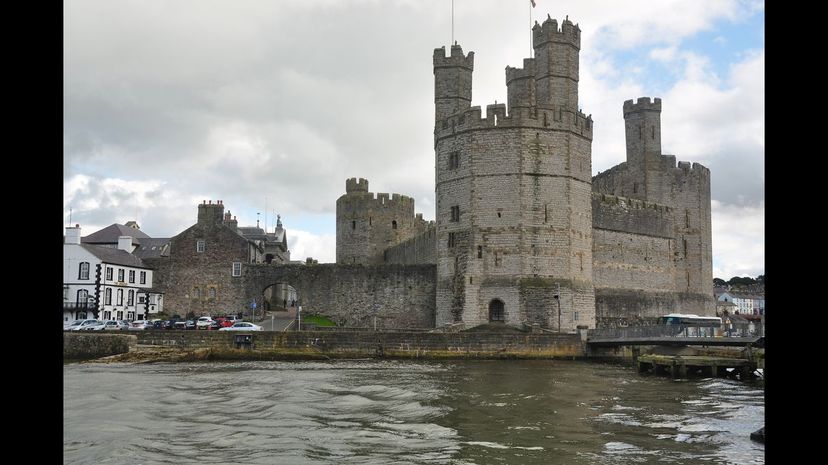
King Edward I beefed up an ancient fort to build Caernarfon Castle in Wales in the 13th century. After centuries of sieges, the imposing stone structure was mostly abandoned by the 19th century. Today, it's been restored and maintained for visitors to take in its polygonal towers, turrets and battlements.
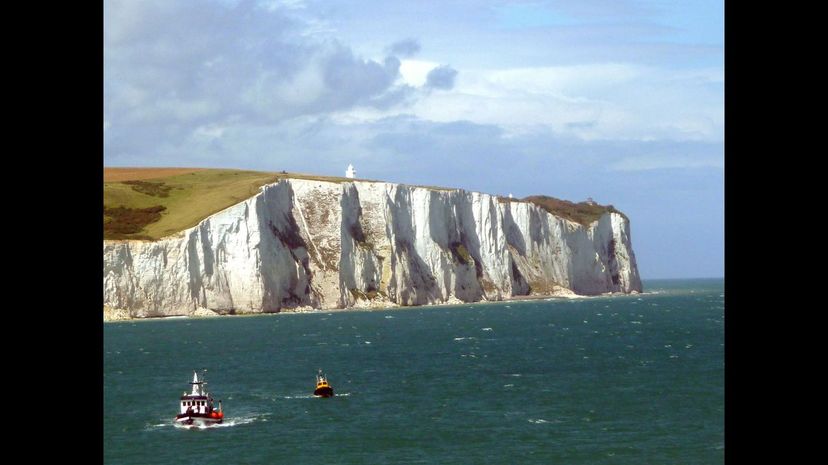
The stunning White Cliffs of Dover soar 350 feet above the English Channel on the country's southern coast. Made of white chalk streaked with black mineral stripes, the cliffs are home to a lighthouse, the 11th-century Dover Castle and a series of secret WWII tunnels that visitors can actually walk through.

London's Palace of Westminster houses the House of Commons and House of Lords that make up the British Parliament. A royal residence from the 11th through the 16th century, this Gothic revival building is perhaps best known for its massive clock tower. But be careful calling it Big Ben-that name actually belongs to the bell inside the tower, not to the clock.
Advertisement
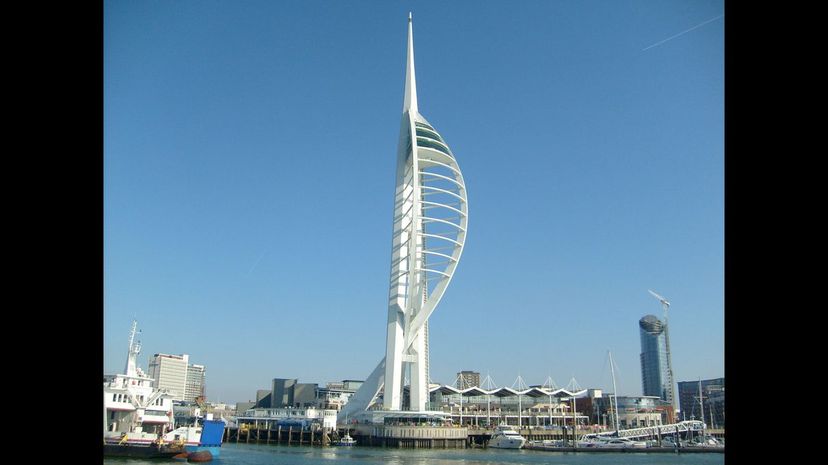
The 560-foot tall Spinnaker Tower resembles a billowing sail, and it's this profile that gives the structure its name. Built in 2005, it was renamed Emirates Spinnaker Tower in 2015 after the airline decided to become a sponsor. Today, visitors can have high tea on the observation deck, walk across a glass observation floor ... or bungee jump off the side.
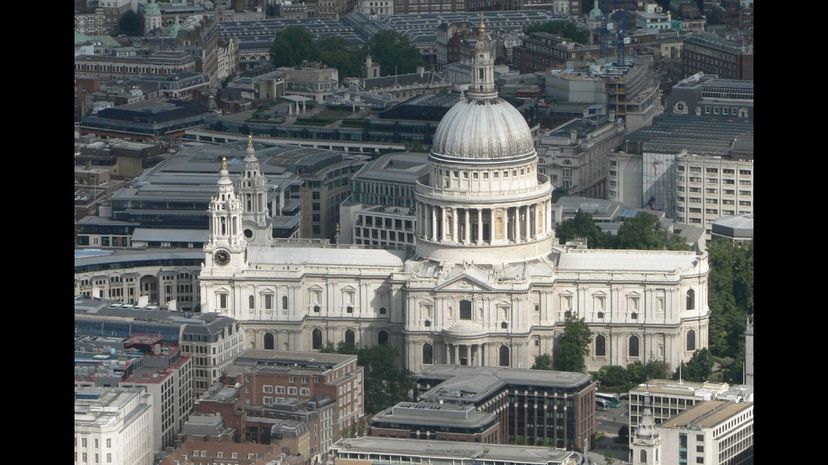
There has been a church at the site of St. Paul's Cathedral in London since the 7th century. In the 1600s, the modern stone cathedral (where much later, in 1981, Charles and Diana wed) constructed in the Baroque style. Its dome was the tallest in the world for hundreds of years.
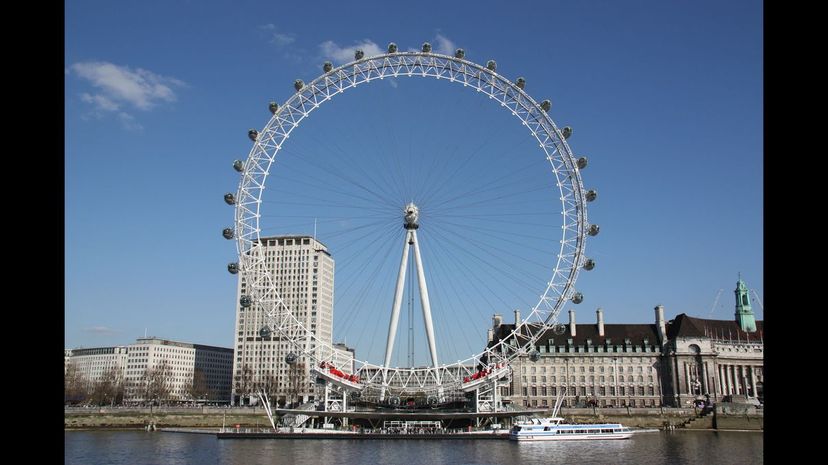
At 440 feet tall, the London Eye is a massive white wheel that offers riders an incredible view of the city. Visitors climb into one of 32 air-conditioned pods, which slowly circle the 400-foot diameter wheel.
Advertisement
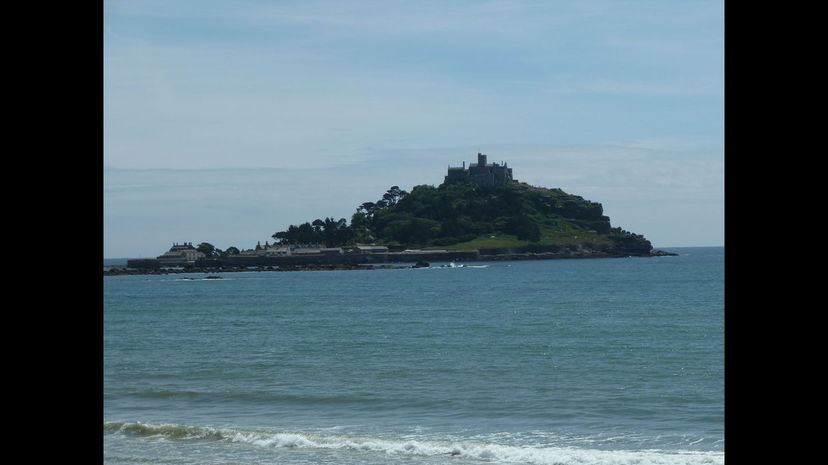
St. Michael's Mount is an island located off the coast of Cornwall, which can only be accessed from the mainland at low tide or via boat at other times. A monastery stood on the island as early as the 8th century, followed by a medieval castle and cathedral. The Mount's official website suggests that a whopping four miracles were performed here in 1262 and 1263 alone, and the site is also associated with legends of Cormoran the Giant, who was killed by Jack the Giant Slayer, of course.
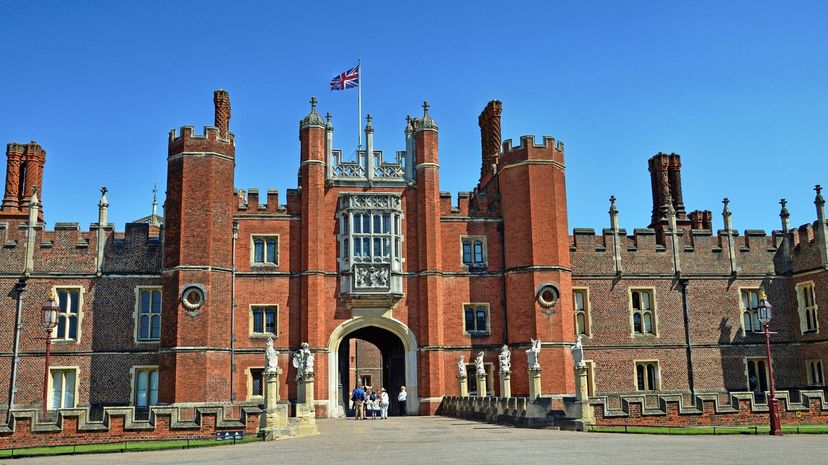
The Tudor-style Hampton Court Palace was gifted to Henry VIII back in the 16th century, and the wife-swapping royal counted it among his many residences. Renovations in the 17th century gave this building a Tudor-Baroque design and expanded its size. Opened to the public by Queen Victoria in the 1800s, Hampton Court Plaza now hosts events ranging from concerts to ice skating.
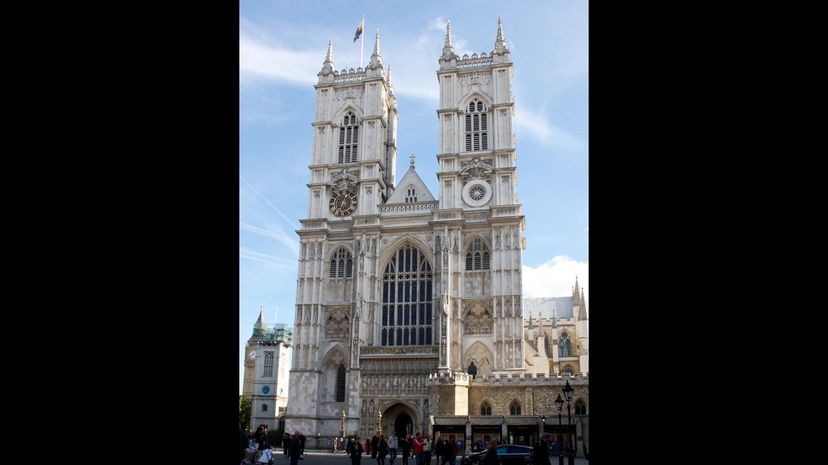
Founded in the 10th century, Westminster Abbey gets its name from the fact that it was once called West Minster, to distinguish it from St. Paul's Cathedral, the East Minster in London. Rebuilt in the Gothic style in the 1200s, the building holds the tombs of thousands of important people, from Charles Darwin to Isaac Newton to numerous kings and queens.
Advertisement
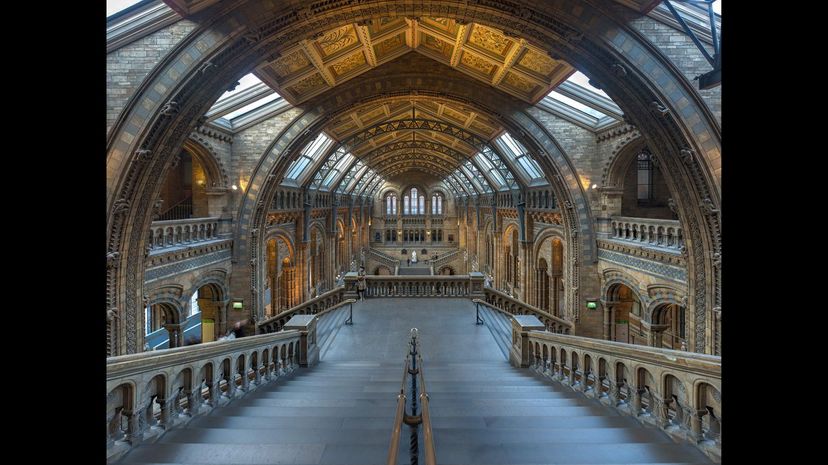
A spinoff of the British Museum designed to hold wonders of science and nature, the Natural History Museum opened in 1881. The bones of Dippy the dinosaur hung above the Central Hall for a century before they were replaced by a Blue Whale skeleton in the 2010s. The Romanesque-style building houses four billion years of artifacts, as well as an area dedicated to Charles Darwin and his work.

The Cerne Giant is a 180-foot tall figure of a man-and yes, it's definitely a man-crafted into a hillside in Dorset using chalk-filled trenches. A rectangular earthwork nearby dates to the Iron Age, but the date of the Giant itself is unknown. Some think it's an ancient Celtic fertility figure, while others argue it's a humorous drawing of Oliver Cromwell. Only the (unknown) artist knows for sure.
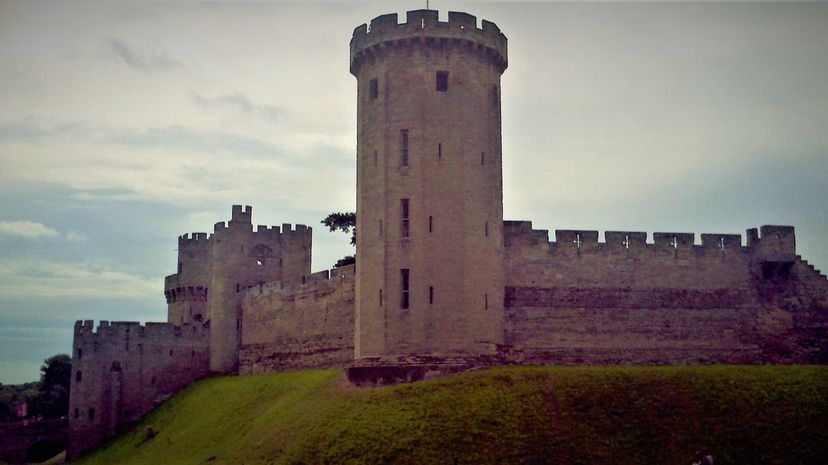
There has been a fortification at the site of Warwick Castle in Warwickshire since at least the 10th century. William the Conqueror upgraded it to a castle in 1068, and it was improved over the years to become an impenetrable and imposing site. Today, visitors can check out the castle's 60-foot tall trebuchet or take part in special events focused on falconry, jousting, dragons or spooky underground dungeons.
Advertisement
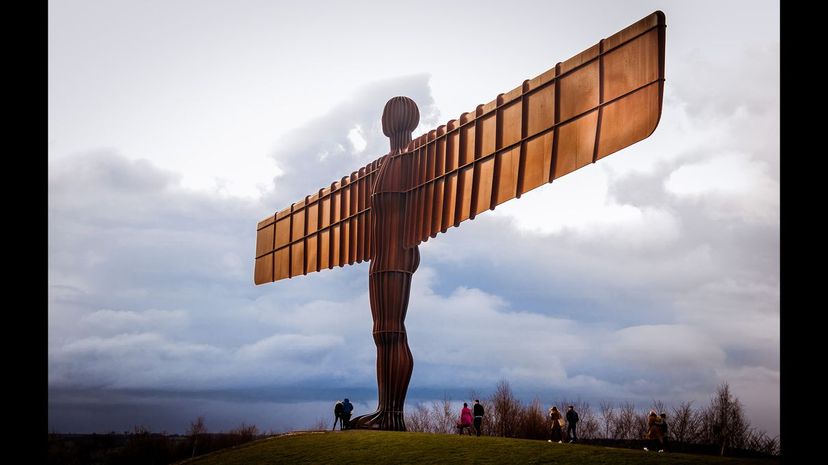
The Angel of the North is one of the most iconic landmarks in the Gateshead area of Northern England. Installed in 1998, this 65-foot-tall steel angel with a 175-foot wingspan pays tribute to the area's rich mining history.
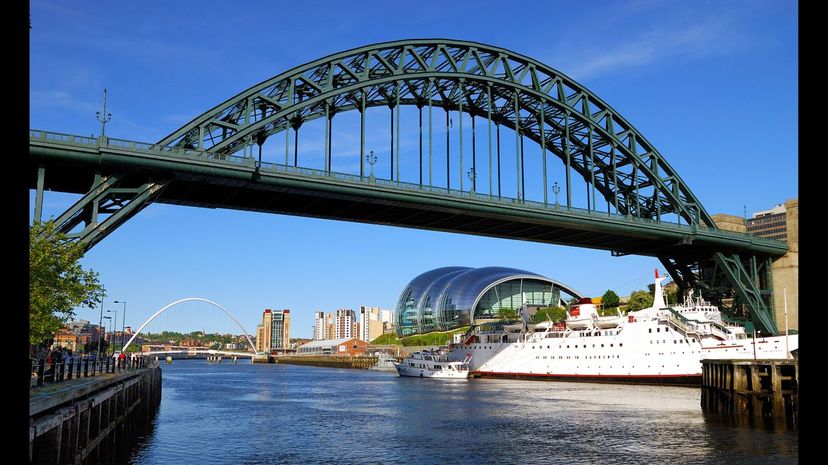
Tyne Bridge opened in 1928 to connect Gateshead and Newcastle upon Tyne on opposite sides of the River Tyne. Built from iron and granite, this British landmark spans 530 feet, but it never became as famous as the Sydney Harbour Bridge that opened in Australia a few years later.
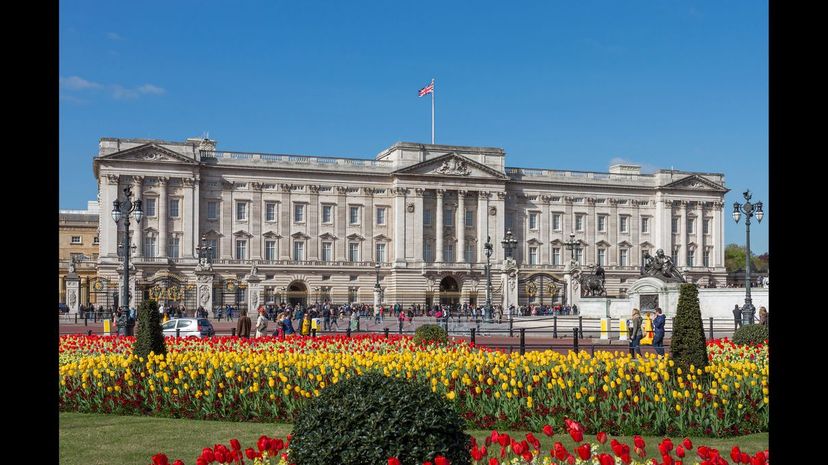
Built by the Duke of Buckingham in 1703, Buckingham Palace has been a royal family residence since the 1760s. Today, it welcomes 50,000 official visitors of the royal family each year and is open for public tours during the summer and holiday season.
Advertisement
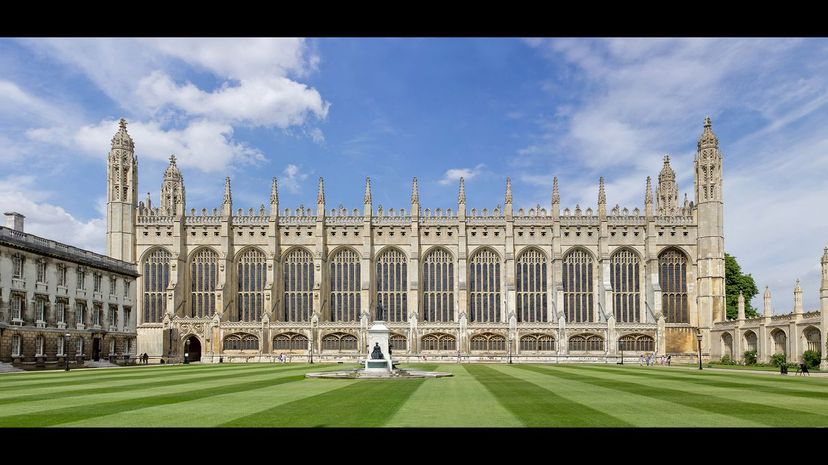
Situated northeast of London, King's College of Cambridge was founded back in 1441 by Henry VI. The construction took centuries to reach its current form and involved a switch from limestone to sandstone. The English Gothic Revival style resulted in a stunning design complete with fan vaults and buttresses.
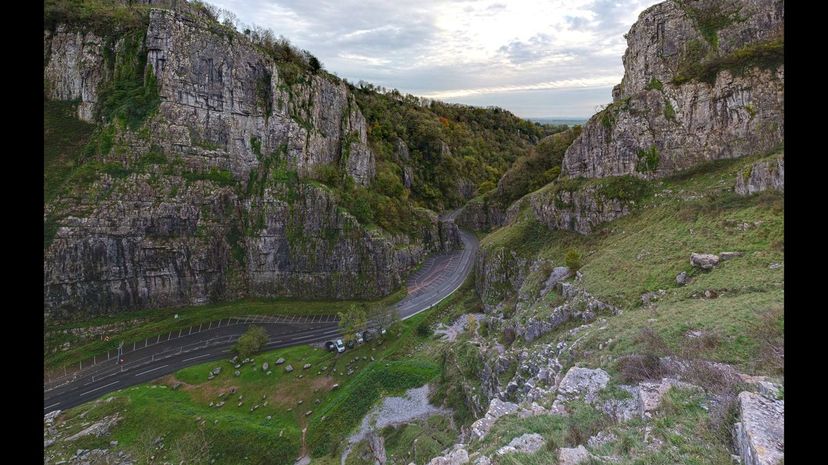
Located near the village of Cheddar in Somerset, Cheddar Gorge has an average depth of 450 feet. In 1903, a skeleton found in a local cave was determined to be 9,000 years old, the oldest complete human skeleton ever found in Britain. You can visit Cheddar Man at his new home in the Natural History Museum in London.
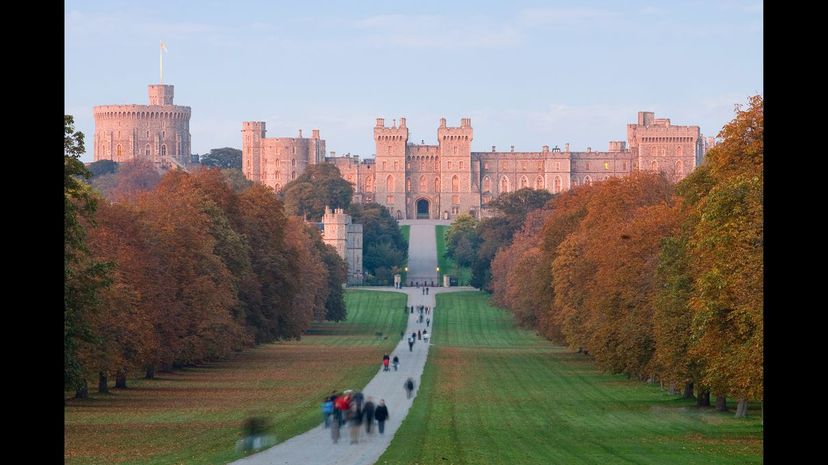
A Saxon palace was established on the site of Windsor Castle to the west of London way back in the 900s. By 1300, it had become a royal residence, and today the castle is a stunning example of Georgian and Victorian architecture. A 1992 fire damaged 100 rooms, though much of the building has since been restored.
Advertisement
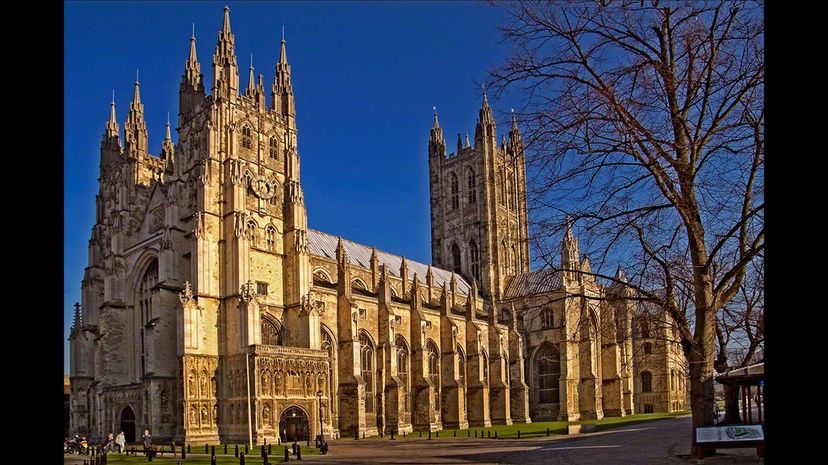
In his 15th-century publication "The Canterbury Tales," Chaucer tells the story of pilgrims on a journey to the famous Canterbury Cathedral. Established as a church in the 6th century by St. Augustine, the Cathedral features a gorgeous Gothic design and stained-glass windows dating from the 12th century.
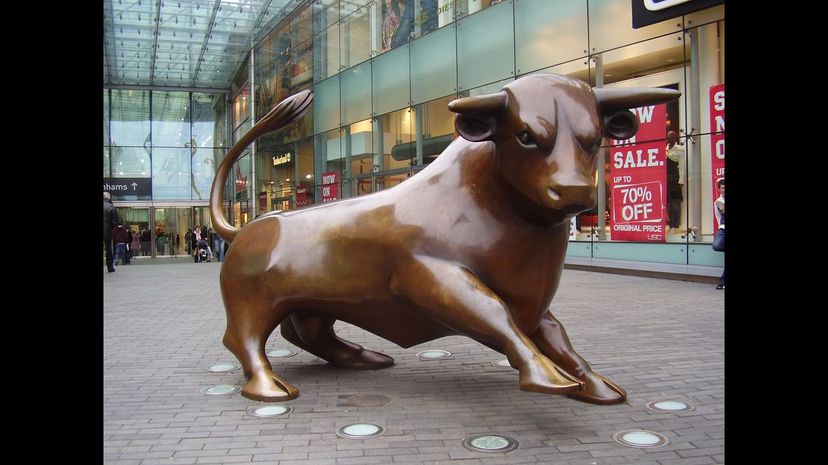
Cast in bronze and measuring 7 feet tall, the Guardian statue at the Bull Ring in the working-class town of Birmingham is twice the size of a real bull. Installed in 2003, it's posed as if ready to fight and serves as a symbol of strength for the local area.
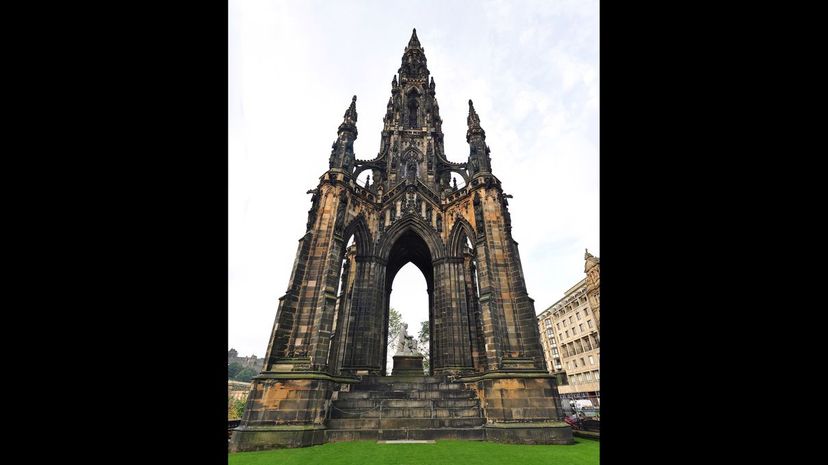
"Ivanhoe" author Sir Walter Scott is one of the most iconic writers to ever come out of Great Britain. To honor his legacy, the Edinburgh Council manages the Scott Monument. It measures 200 feet tall, has a Victorian Gothic design and allows fans of the writer to climb narrow spiral staircases to take in the view of the city.
Advertisement
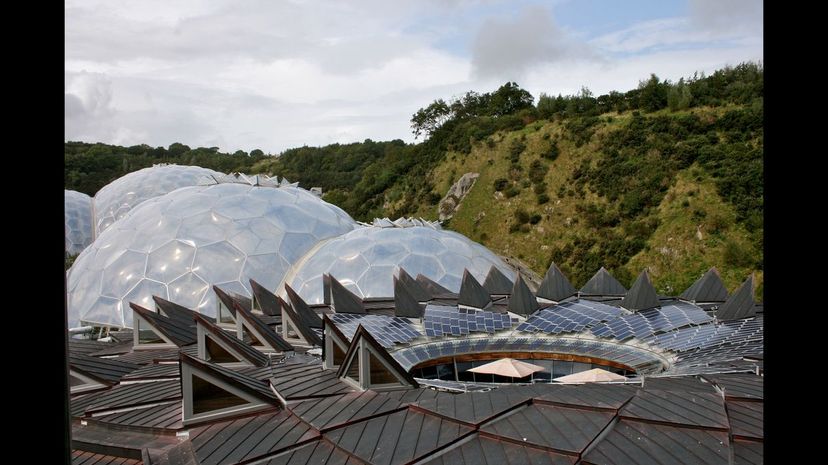
The Eden Project consists of hundreds of steel-framed domes with biomes designed to mimic the environment in the rain forest, the desert, the Mediterranean and a variety of other climates. In just the first three months the site was open in 2000, more than a million people visited to explore the plant life inside, according to The Eden Project website.
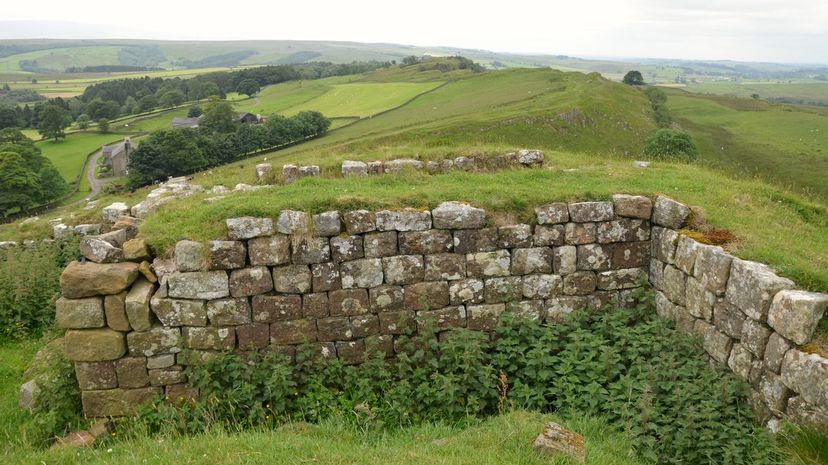
An UNESCO World Heritage Site, Hadrian's Wall stretches 73 miles through Northern England, connecting the North and Irish Seas. Begun in the 2nd century to keep out invaders, the wall is dotted with features like turrets and forts.
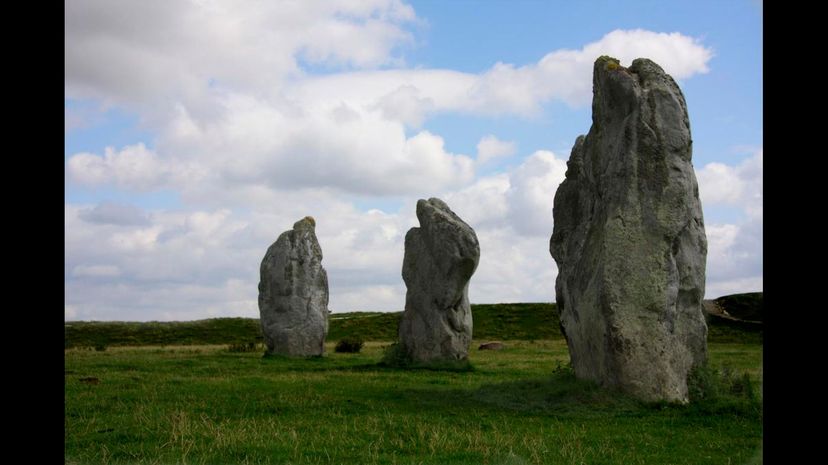
Dating to around 2,500 years ago, the Neolithic Avebury Stone Circle is just 25 miles from the more famous Stonehenge. It consists of a huge earth-mound circle, with several smaller circles of large stones inside. The landmark is located in Southern England, about halfway between Bath and Oxford.
Advertisement
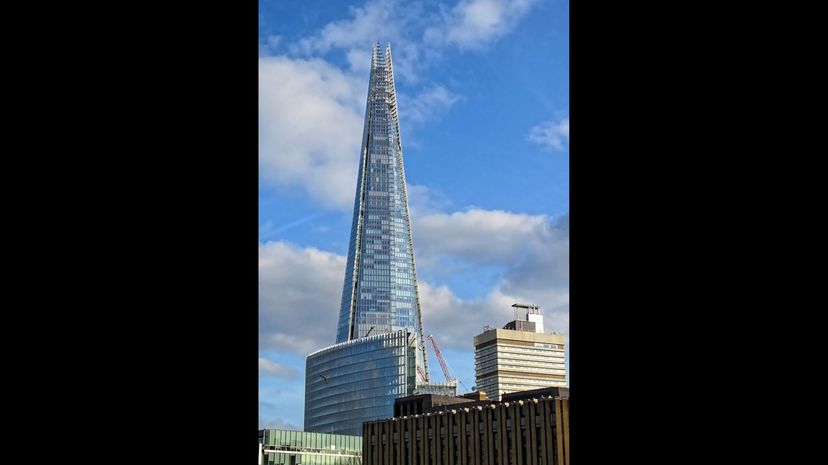
Towering over London like a massive sliver of glass, the 95-story Shard building measures more than 1,000 feet tall. Completed in 2012, it's Britain's tallest skyscraper, and the observation deck offers a view from about twice as high up as the London Eye.